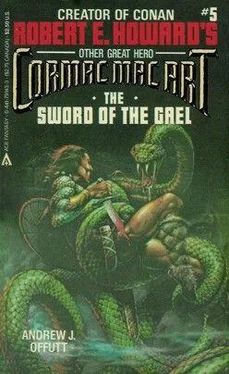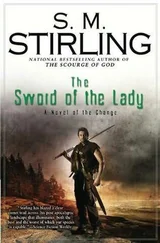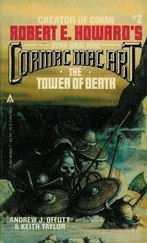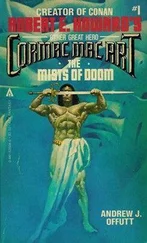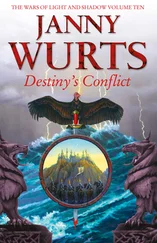Andrew Offutt - The Sword of the Gael
Здесь есть возможность читать онлайн «Andrew Offutt - The Sword of the Gael» весь текст электронной книги совершенно бесплатно (целиком полную версию без сокращений). В некоторых случаях можно слушать аудио, скачать через торрент в формате fb2 и присутствует краткое содержание. Жанр: Фэнтези, на английском языке. Описание произведения, (предисловие) а так же отзывы посетителей доступны на портале библиотеки ЛибКат.
- Название:The Sword of the Gael
- Автор:
- Жанр:
- Год:неизвестен
- ISBN:нет данных
- Рейтинг книги:3 / 5. Голосов: 1
-
Избранное:Добавить в избранное
- Отзывы:
-
Ваша оценка:
- 60
- 1
- 2
- 3
- 4
- 5
The Sword of the Gael: краткое содержание, описание и аннотация
Предлагаем к чтению аннотацию, описание, краткое содержание или предисловие (зависит от того, что написал сам автор книги «The Sword of the Gael»). Если вы не нашли необходимую информацию о книге — напишите в комментариях, мы постараемся отыскать её.
The Sword of the Gael — читать онлайн бесплатно полную книгу (весь текст) целиком
Ниже представлен текст книги, разбитый по страницам. Система сохранения места последней прочитанной страницы, позволяет с удобством читать онлайн бесплатно книгу «The Sword of the Gael», без необходимости каждый раз заново искать на чём Вы остановились. Поставьте закладку, и сможете в любой момент перейти на страницу, на которой закончили чтение.
Интервал:
Закладка:
“He ruined my medallion, too!”
Shock and awful fear abruptly broken as they realized the medallion had not only saved her life but kept her unscratched, Ceann and Cormac burst into loud laughter that threatened to go out of control.
“You idiots wouldn’t bray so an your chests hurt with every breath!” Samaire railed, and her lower lip ran out.
Chapter Sixteen: To the Fair!
These in fullness were there,
The clans of Rudraighe
without lasting grief-
To be under the protection of the Fair,
Every third year, without prohibition.
– “The Great Fair”; tr. O’Curry
Three highwaymen were dead. The fourth was unconscious, scratched and bruised, and his wrist sprained. Nevertheless he walked at the end of a rope after the three he’d sought to rob. And it was company he had behind their horses, for they dragged the bodies of his dead comrades.
“We’ve eased Meath of four forest-thieves,” Cormac pointed out. “It’s welcome we’ll be, with the proof stirring the dust behind our mounts!”
It was thus the three travelers reached Tullamor, and it was within the house of its lord they partook of a sampling of that town’s food and drink.
The thieves’ bodies hung for all to see at the town gate-all four bodies. They were only too well known; Carbri Black-beard and his band had been at their dark work in the Wood of Brosna for over a year, and it was many travelers they’d robbed. Too, the ruthless quartet had six counts of rape and seven deaths to their debit.
“Carry this with ye to Tara,” Tullamor’s lord Milcho told them, “and show it to the High-king, for even he knows of Carbri Black-beard and his murderers.” He handed the sealed message to Cormac, who passed it to Ceann. “But tarry here, friends and heroes three, at least until we’ve brought forth the loot they’d hid!”
The fourth highwayman had been in a great hurry to tell precisely where he and his companions in thievery had cached their booty-once his eyeballs were threatened. He had been rewarded for that loosing of his thief’s tongue. It was the swift end of hanging he received, rather than the uglier and much slower forms of death the citizen’s of Tullamor had clamored for. Drawn mercifully up with rope about his neck, he’d messed his leggings and danced in air. Only the breeze moved his companions at the ends of their ropes, and soon they were joined by the victim of Samaire’s plunging horse, and now swift justice; he danced not long.
“Their booty belongs to its original owners,” Ceann said. “And what remains unclaimed is for Tullamor. We’re for Tara and the Fair, Lord Milcho, and despite your kindness we’d be on the road at break of day.”
“Kindness!” Milcho exploded. “Why your name will be on Meathish tongues for years to come, Celthair, and your valiant sister Ess-and yours, Cormac, who slew first!”
Samaire smiled rather wistfully. “In Munster where we slew Picts, we be called the offspring of Cuchulain,” she said. “In the home of Mogh mac Findtain of lower Meath, it’s Anu and Grannus and Curoi we are. Now it’s back to Celthair and Ess for me and thee, brother.”
Milcho was frowning. “I have not… your true names then, heroes of Eirrin?”
“Lord Milcho,” Cormac said, “ye have not. It’s Cormac mac Art of Connacht I am. As for my companions… they be lord and lady. An you’ll wait till we’re after reaching Tara Hill, a messenger will soon bring ye word of their true names.”
Frowning, Milcho looked from one of his guests to the next. “Lord and lady?”
“Cormac,” Ceann said, “has for once said too much. But aye Lord Milcho. We travel with our names in hooded cloaks, and I believe ye’ll soon know the reason, once we have held converse with the Ard-righ.”
Awhile longer Milcho mac Rogh gazed in frowning puzzlement on his guests. Then he heaved a sigh and touched the table near Ceann’s arm. “Well, my lord and lady, I shall rephrase my words to the High-king then, and say no more; no man need tell all his business lest the crows fly off with it. Too, when ye’ve done what ye three have, why-” Milcho broke off. He pointed triumphantly.
“Prince Senchann!”
His three visitors laughed, then apologized. Nay, they were not of the Eoghannacta of Munster, and surely even disguise-loving Senchann mac Eogain came not so far north in his minstrelish role.
Again Milcho sighed. “There are stories,” he said, but he did not trouble to add more of Senchann, who was already becoming legend. Milcho beamed upon the trio, pausing to regain composure.
“Well, my goblet has gone empty, and it’s filled I like it best! My lord, my lady… mac Art?”
Samaire shook her head; careful Ceann peered into his cup. But Cormac extended his with alacrity, without a glance within.
“Aye, Lord Milcho, my throat would welcome a wetting with more dairlin drops of the dew of Tullamor!”
The three, their finery now undisguised, set off once more on the morning of the morrow. Now there were many on the broad road, the Slighe Dala, one of five great highways that led to Tara of the Kings. It was the last day of July but one, and brightly clad pilgrims from every walk of life thronged to the capital for the great Fair. It preceded the less festive but more important-to some-gathering of Feis Mor.
The air was silent by the shrill voices of pipes and flutes and gaily chattering people.
The three heroes of Brosna Wood were unable to trot their restless mounts amid that teeming pilgrimage, much less gallop to reach their goal the faster. Other horses plodded along, some gaily decorated draft-animals, others richly caparisoned, prancing pacers. The latter were sat by lords and ladies in fine fabrics and jewels that flashed and twinkled from settings of gold and silver. One-horse carts there were too, and some drawn by teams of two big-hoofed horses or stolid oxen with decorated yokes. The carts were laden with produce or the handiwork of many a long winter’s even, and mayhap after the fair more than one of the proud nobles would ride home wearing some sample of the superb workmanship that now burdened peasantish carts.
People of festive mind called out gaily to each other. Smiles, like precious metals and gems and brightly-coloured clothing, challenged the sun for brilliance. Men and women alike, aye and children and beasts of burden, stood tall and proud. Hair was fresh-trimmed and well washed, bedizened with ribands and pearls, bands of silver or fine-coloured leather set with stones, and sometimes gold. Precious or no, the stones were bright and twinkly and varicoloured, and proudly worn.
It was Fair time, and there were no Munstermen in the throng, or Connachtish or Meathish fairgoers yet either, no Ulstermen or Leinsterish travelers to Tara this day. All were Eirish. The Irish gathered together in peace, and with high happiness.
Insofar as it were possible, there were no peasants or merchants, no creditors or debtors; and a lowborn son or daughter of the soil was as one with the highchinned scions of well-known old houses and their richly draped and dazzlingly bejeweled ladies.
All were of Eirrin, and free, and proud of both.
No creditor held power over those in his debt, for such was the law of Fair-time; lenders had even to return, on request, the personal possessions pledged against debts. This so that all the sons and daughters of Eirrin might hold high their heads on this great occasion, be they descendants of Celts or Sidhe, of fishermen or warriors or poets, of the ua-Neill or from generations of raisers of flax or snorting swine. All were free at the Fair. And all were safe, for the King’s Peace prevailed, on pain of death-as Cormac mac Art of Connacht well remembered.
Читать дальшеИнтервал:
Закладка:
Похожие книги на «The Sword of the Gael»
Представляем Вашему вниманию похожие книги на «The Sword of the Gael» списком для выбора. Мы отобрали схожую по названию и смыслу литературу в надежде предоставить читателям больше вариантов отыскать новые, интересные, ещё непрочитанные произведения.
Обсуждение, отзывы о книге «The Sword of the Gael» и просто собственные мнения читателей. Оставьте ваши комментарии, напишите, что Вы думаете о произведении, его смысле или главных героях. Укажите что конкретно понравилось, а что нет, и почему Вы так считаете.
